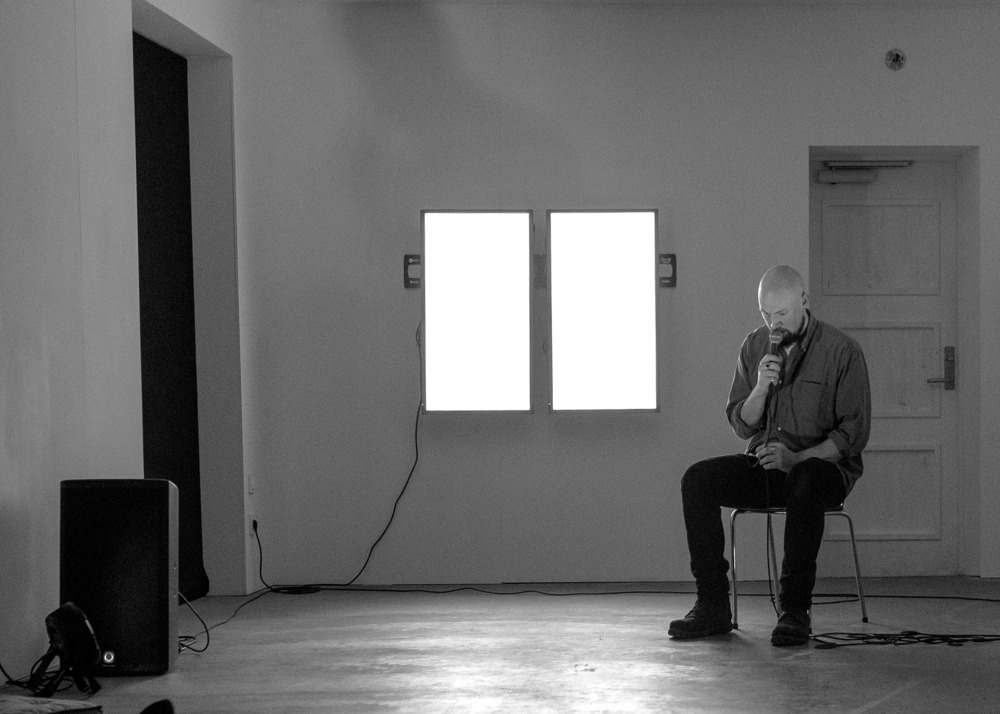
PROTEST OF THE PHYSICAL
first performed on December 6, 2019
SLAKT Galleri, Bergen, Norway
performed once in 2019
SAMUEL BRZESKI
Bergen, Norway
samuelbrzeski.com
PROTEST OF THE PHYSICAL
SAMUEL BRZESKI
This performance is part of the “Time tapers to a point” series of durational repetitive performances in which poems written by other people are repeated over several hours. The preparation for the performances starts with a deep and involved experience of learning a poem quite entirely. The poem is then rewritten a number of times, creating twenty or thirty different versions, which are themselves learnt in their entirety before being repeated in front of an audience. The performance lasts four hours to complete the cycle, and this is conducted without breaks.
In this iteration, an extract from the poem “Protest of the physical” by British poet Andrew McMillan was used as original source material. This longform poem by McMillan is an exploration of half-remembered conversations, contemporary masculinity, and the domestic space, and also itself references various other poems by other authors. I chose fifteen lines of this poem to repeat, recite, relearn, and rewrite.
The performance starts with basic repetitions of the poem itself. As the recitations progress, I introduce variations in to the revolutions: changing a line, giving a pause, marking a phrase, or adding a word. As the night progresses (and these performances always take place in the protracted space of the dark Nordic night), the narrative of the poem shifts, warps, adjusts, and progresses, as subject matter and perspective move and adjust. Adaptations, improvisations, and adjustments are made vocally to the text within the performance space. As a background, a repetitive, semi-rhythmic drone soundscape plays over speakers.
This work demonstrates how, with just one small variation, the whole of the intention and the aura of the original poem can be transformed into something else. The plasticity of language through textual and vocal fluctuation can be explored almost endlessly in this manner, creating a communal experience of embodied reading. The meditative rhythm of the voice-as-mantra creates a sonic experience of the cycles of time, change, repetition, and memory. The performance references traditions of oral storytelling, campfire tales, and grand epic poetry, and presents a possible return to these traditions of the shared experience of language and narrative. Also at stake is the question of poetic authorship and the subjective nature of the experience of poetry, and suggestion of the collective ownership of the sonic realm of poetry.